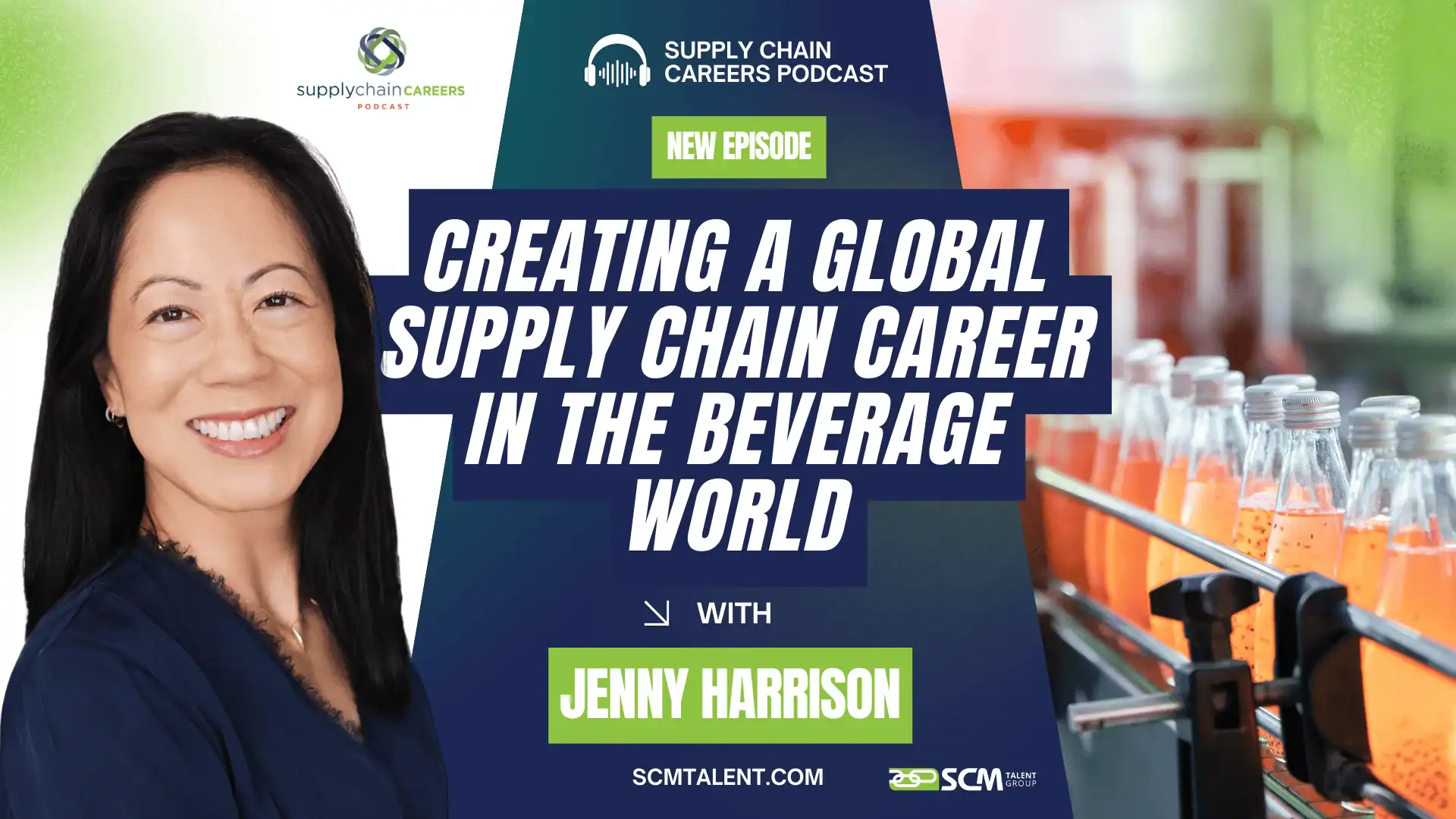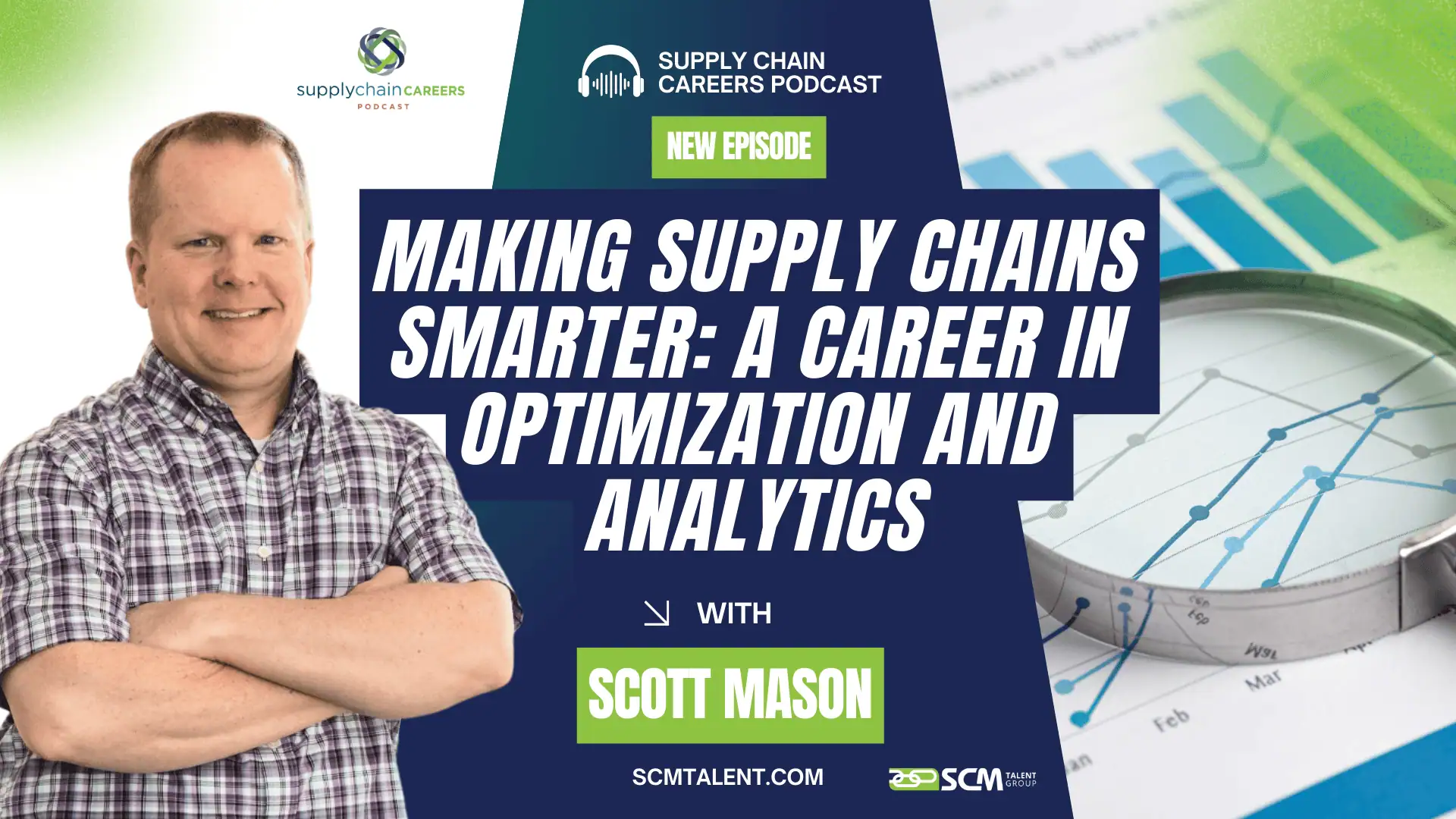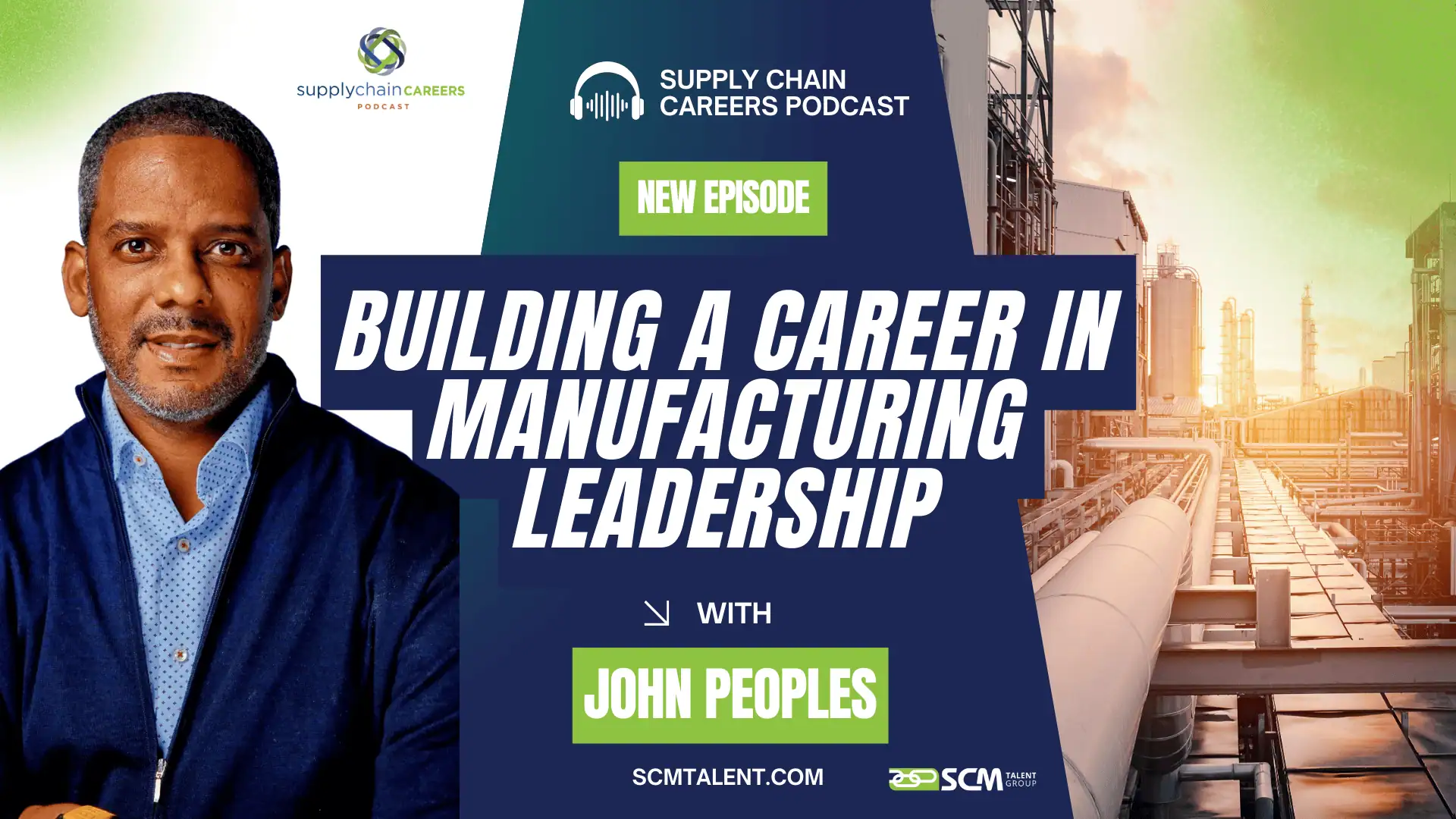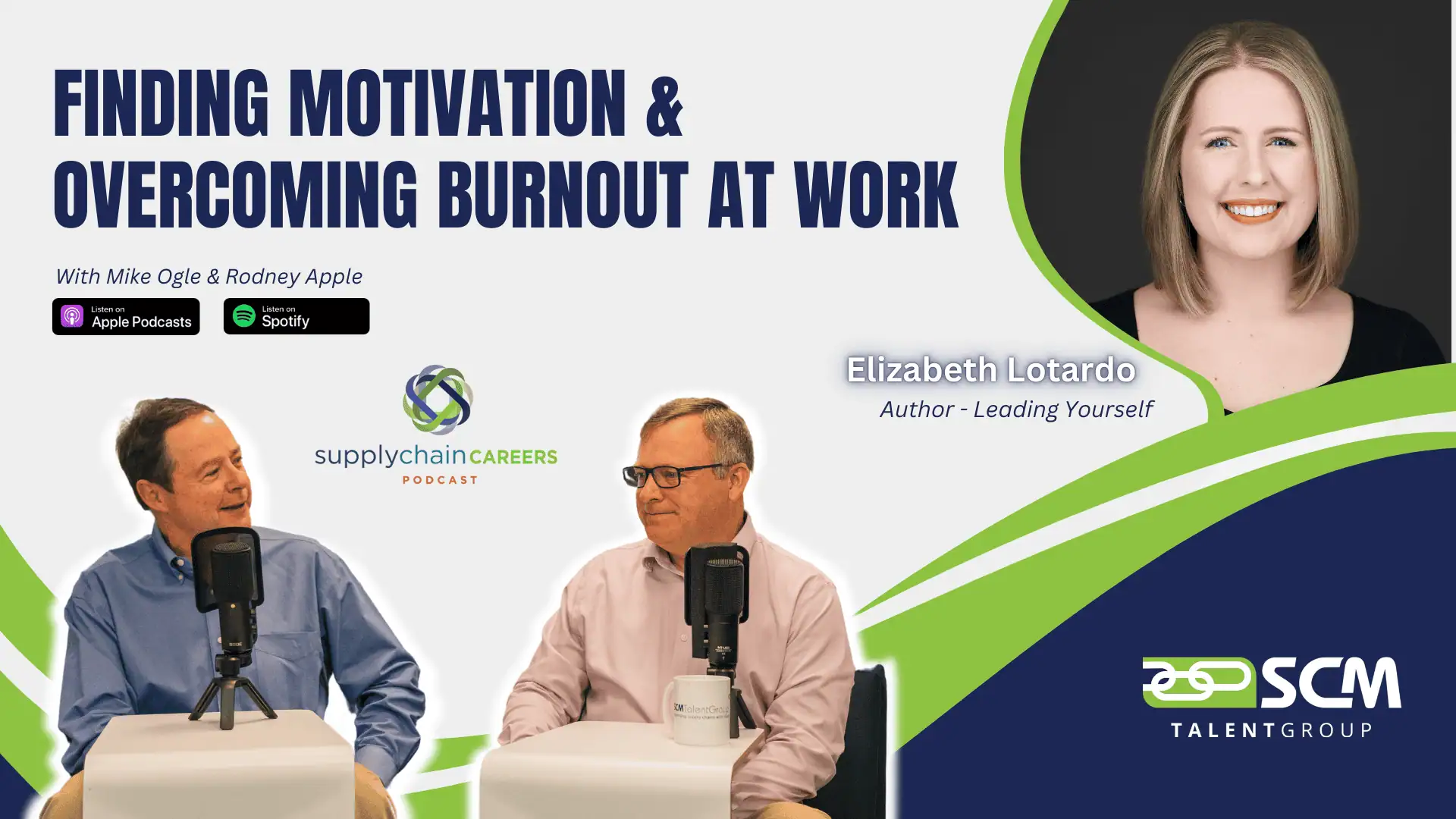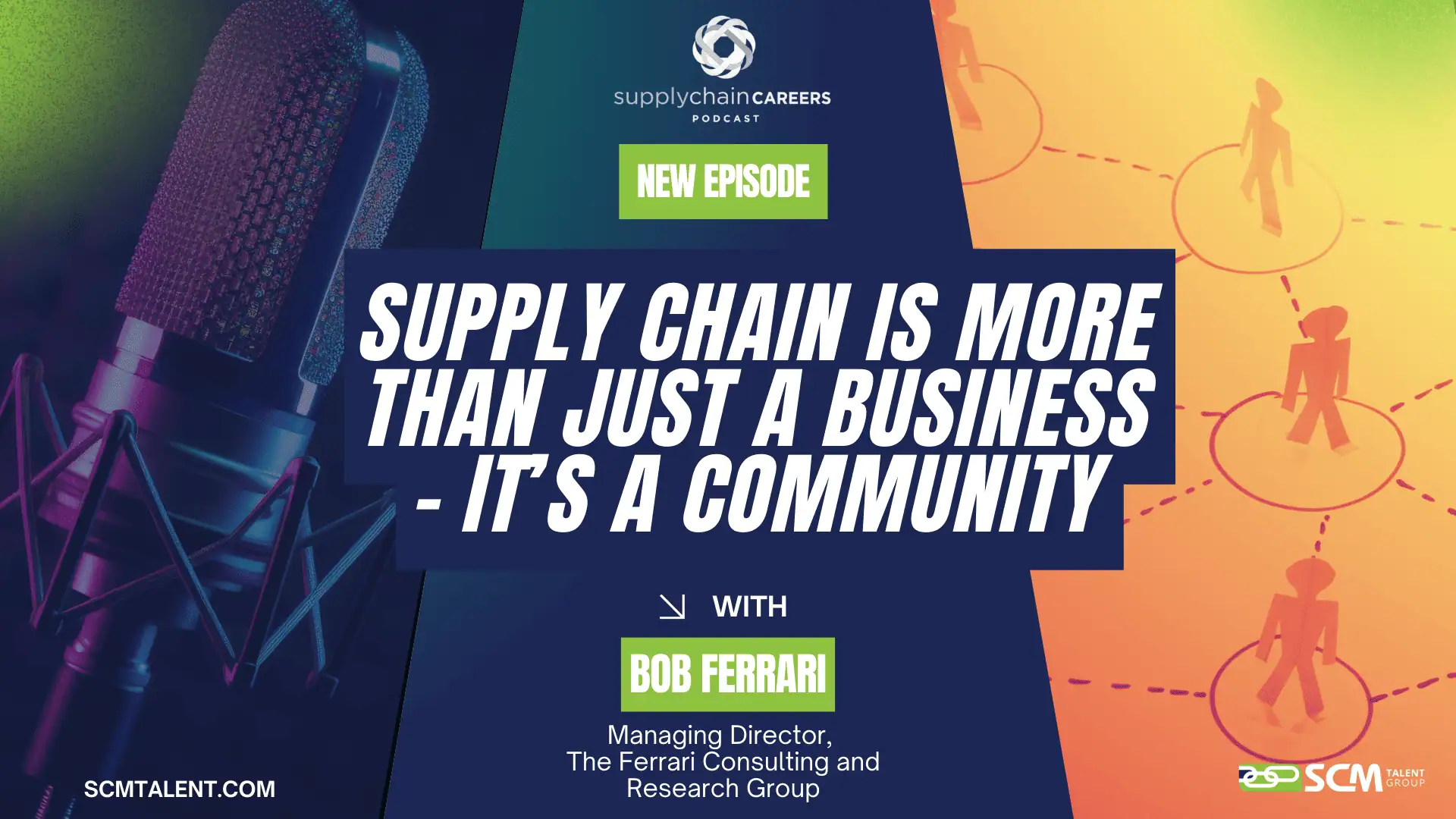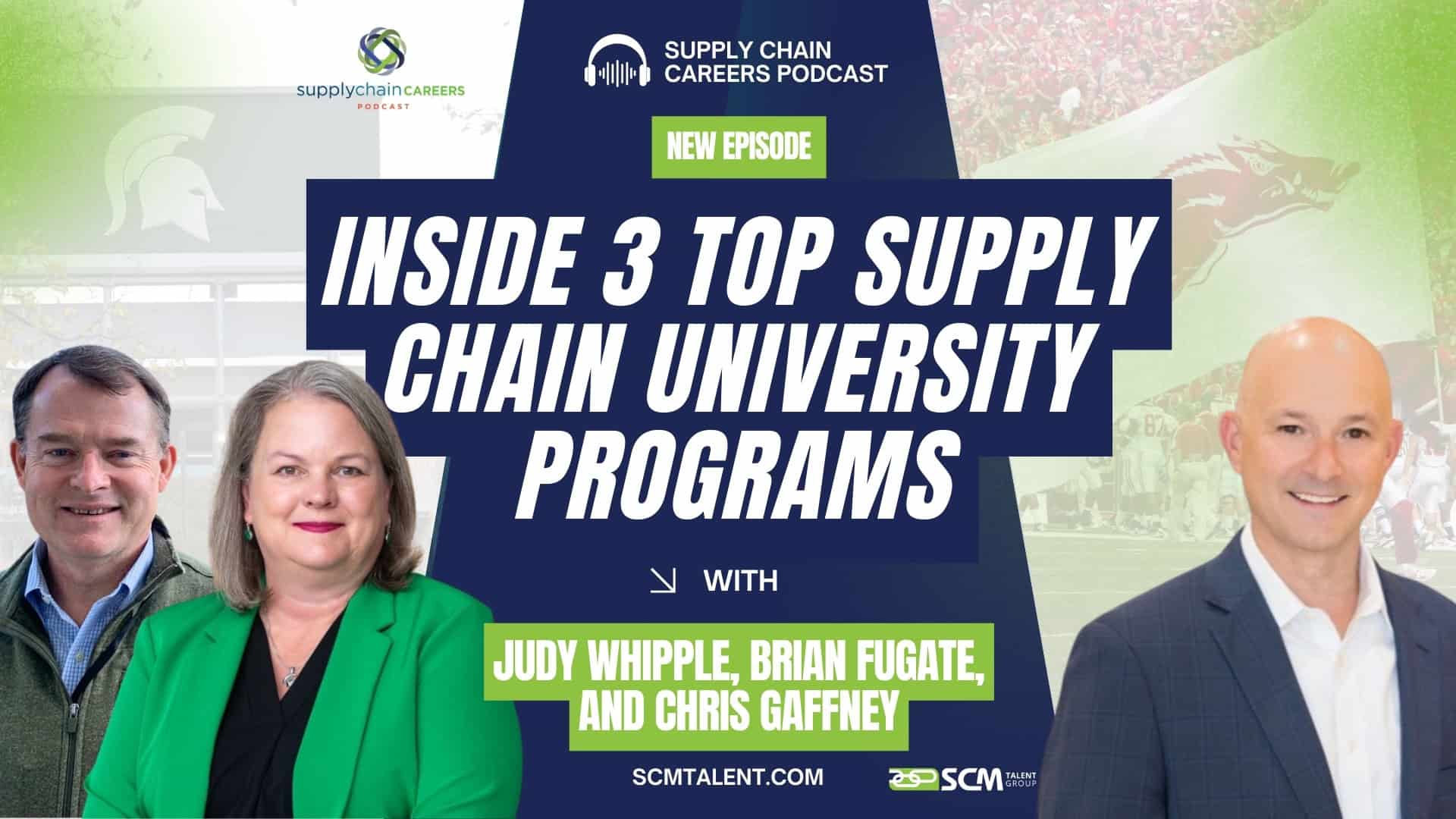
Inside 3 Top Supply Chain University Programs – How They’re Building Tomorrow’s Leaders (Part 1)
Featuring:
🎙️Host: Chris Gaffney, Co-host, Supply Chain Careers Podcast & Managing Director, Georgia Tech Supply Chain & Logistics Institute
🎙️Host: Mike Ogle, Co-host, Supply Chain Careers Podcast & Supply Chain Professor, Appalachian State University
🎙️Host: Rodney Apple, Co-host, Supply Chain Careers Podcast & Founder & CEO, SCM Talent Group
🎙️Guest: Dr. Judy Whipple, Bowersox-Thull Endowed Professor of Logistics and Supply Chain Management, Michigan State University
🎙️Guest: Dr. Brian Fugate, Chair, JB Hunt Department of Supply Chain Management, University of Arkansas Walton College of Business
Developing the Next Generation of Supply Chain Talent: Insights from Leading Academic Institutions
The supply chain discipline is evolving at a rapid pace, shaped by AI, shifting global policies, automation, and employer demands for new skillsets. In a recent episode of the Supply Chain Careers Podcast, academic leaders from three of the nation’s top programs shared how they’re preparing students for the future of the profession.
The discussion brought together Dr. Judy Whipple, Bowersox-Thull Endowed Professor of Logistics and Supply Chain Management at Michigan State University’s Broad College of Business; Dr. Brian Fugate, Chair of the JB Hunt Department of Supply Chain Management at the University of Arkansas’ Walton College of Business; and Chris Gaffney, Director at Georgia Tech’s Supply Chain and Logistics Institute. Hosting were Rodney Apple, Founder of SCM Talent Group, and podcast co-host Mike Ogle.
Academic Programs Built for Today’s Market
Michigan State University offers one of the nation’s most recognized supply chain programs. “We offer an undergraduate degree that’s consistently one of the top two majors in our college,” said Whipple. “Our graduate programs include a full-time MBA with a supply chain concentration, a hybrid MS in Supply Chain, a new online graduate certificate, and two PhD tracks.”
Arkansas has taken a flexible approach to meet different learner needs. “We offer multiple formats of our master’s degree, including a fully online option and a hybrid program in Northwest Arkansas,” noted Fugate. “This fall we’re launching a hybrid Dallas program to serve our large alumni and corporate base there.”
At Georgia Tech, supply chain offerings are concentrated within engineering and business programs, with strong ties to industry. “Our Supply Chain and Logistics Institute is our primary hub for industry engagement, with research boards, corporate partnerships, and specialized certificates in areas like analytics and facility optimization,” explained Gaffney.
Evolving Curriculum to Match Industry Shifts
Each program has been actively adjusting coursework to address rapid industry change. Whipple pointed to the addition of supply chain–specific analytics courses and one-credit industry-led classes on topics like customs compliance.
Fugate described an approach that deeply integrates real company data into coursework. “Our freshmen are working with Walmart’s retail data from day one,” he said. “By the time they graduate, they’ve also used AI tools from Blue Yonder and partnered with companies on live projects.”
For Gaffney, the priority is balance. “Students have been gravitating toward analytics-heavy roles, but employers are saying they need more applied context,” he said. “We’re encouraging internships that give them hands-on, operational experience, even in unexpected places like bakeries or family-owned businesses, because that application is what differentiates them.”
AI in the Classroom: Tool, Challenge, and Opportunity
Whipple compared AI to a calculator: “If I’m teaching basic arithmetic, I don’t want students using a calculator. But if I’m teaching differential equations, it becomes essential.” She emphasized the need for clear faculty policies and transparency when AI is used in assignments or research.
Fugate said his program is “all in” on teaching students to be AI-augmented leaders. “We’ve increased output expectations to match what AI can help them achieve. Our goal is to produce graduates who can work hand-in-hand with AI tools, ethically, strategically, and effectively.”
Gaffney stressed that machine learning is the true accelerator within AI for supply chain. “It’s the differentiator employers are looking for in resumes,” he said. “But no AI will replace critical thinking or the soft skills needed to collaborate, influence, and deliver results.”
Career Outcomes: Strong Demand with Higher Standards
Graduates from all three programs continue to enjoy strong job markets. Consulting remains a top destination, though manufacturing and logistics roles are on the rise.
Fugate noted that while the post-COVID “instant job offer” era is over, “it’s still one of the best job markets I’ve seen in my career, students just have to work for it now.”
Whipple highlighted the value of rotational programs and multiple internships, while Gaffney pointed out that “half our graduates go to work where they interned, which speaks to the power of those experiences.”
Skills for the Future: Agility, Communication, and End-to-End Thinking
Looking ahead, employers are asking for more than just technical skills.
“Learning agility is critical, the ability to adapt quickly and see challenges as opportunities,” Fugate emphasized.
Gaffney added that communication remains a top differentiator: “Students who can listen, articulate, and influence in front of a group have a clear advantage.”
Whipple agreed, noting that supply chain professionals must “translate operational metrics into financial language that resonates with the C-suite.” She and Fugate also noted a growing demand for end-to-end supply chain thinking, a concept long taught in academia, but now increasingly prioritized by employers.
Lifelong Learning and Continuing Education
All three institutions see continuing education as an essential growth area.
“We’re creating corporate certificate programs that can stack into degree credit, so learning can happen throughout a career,” said Fugate.
Whipple noted an increase in custom, in-person leadership programs for high-potential employees across a company’s global operations. Gaffney added that frontline supervisors, often promoted without formal leadership training, are a major focus for reskilling.
Final Takeaway
As automation, AI, and global complexity reshape supply chains, the next generation of talent will need to be technically adept, agile, and highly communicative. The programs at Michigan State, Arkansas, and Georgia Tech are adapting rapidly, ensuring their graduates can bridge classroom theory with industry application from day one.
Or as Gaffney put it: “Our best graduates are the ones who know how to get stuff done.”
Who is Judy Whipple?
Dr. Whipple is the Bowersox-Thull Endowed Professor of Logistics and Supply Chain Management and former Interim Dean of the Broad College of Business at Michigan State University. Prior to this, she directed the Food Industry Management Program at MSU. Dr. Whipple has extensive teaching experience at the undergraduate and graduate level, teaching in the Full-time MBA, Executive MBA, MS-SCM and doctoral programs. Dr. Whipple was awarded the MSU Teacher Scholar Award for excellence in teaching and research, the Council of Supply Chain Management Professionals (CSCMP) Educators Conference Teaching Innovation Award, and various best paper awards, including the Bernard J. La Londe Best Paper Award of the Journal of Business Logistics. Dr. Whipple’s research interests include supply chain integration and collaboration. Judy has published work in numerous logistics, supply chain and marketing journals. For her contribution to the field of supply chain management, she was selected as a DC Velocity Rainmaker. She previously served on the Board of Directors at CSCMP, chaired its Research Strategies Committee and co-chaired its Supply Chain Innovation Award. Dr. Whipple currently serves on the Board of Directors of the Institute for Supply Management (ISM).
Who is Brian Fugate?
Brian Fugate is the Associate Dean of Graduate Programs and Research, Chair of the Department of Supply Chain Management, and the Oren Harris Endowed Chair in Transportation at the University of Arkansas Sam M. Walton College of Business. He is a co-author of The Blockchain Toolkit: A Supply Chain Manager’s Guide to Understanding and Implementing Blockchain and Operations and Supply Chain Management: Enhancing Competitiveness and Customer Value. Brian is a former MIT Fulbright Senior Research Scholar, Co-Editor-in-Chief of the Journal of Supply Chain Management, and recipient of multiple awards for innovations in teaching, including AACSB’s Innovations That Inspire Award. Brian previously worked in supply chain management and industrial engineering in the airline, consumer packaged goods, and automotive industries.
Who is Chris Gaffney?
Chris Gaffney currently serves as Managing Director of Georgia Tech’s Supply Chain and Logistics Institute (SCL).
Chris Gaffney was most recently VP of Global Strategic Supply Chain at The Coca-Cola Company. During his 25-year tenure with Coca-Cola, Chris held multiple leadership roles including President of Coca-Cola Supply, SVP Product Supply System Strategy, VP of System Transformation, and VP of Logistics for North America. Chris also served as President of the National Product Supply Group; a governing body responsible for 95% of volume produced in North America. Following his retirement from Coca-Cola in 2020, he assumed the role of Principal at ECG and partner at EDGE Supply Chain, providing advice and consulting in the Supply Chain space. Gaffney has extensive experience in Consumer Products Supply Chain, Supply Chain Strategy & Transformation, Footprint Design & Network Optimization, Supply Chain Operating Model and Capability Building and Logistics and Supply Chain Planning.
Check Out Other Podcast Episodes:
Creating a Global Supply Chain Career in the Beverage World – with Jenny Harrison
In this episode of the Supply Chain Careers Podcast, we sit down with Jenny Harrison, a seasoned beverage supply chain leader.
Making Supply Chains Smarter: A Career in Optimization and Analytics – Scott Mason
In this episode of the Supply Chain Careers Podcast, we sit down with Scott Mason, a seasoned supply chain leader whose career spans high-impact roles in industry, academia, and now at Amazon, where he leads optimization efforts for under-the-roof operations.
Building a Career in Manufacturing Leadership – with John Peoples
Discover how John Peoples built a 25-year career in manufacturing leadership by focusing on culture and continuous improvement.
Finding Motivation & Overcoming Burnout at Work
Struggling with burnout? Learn how to reignite your motivation through purpose and mindset shifts. Insights from expert Elizabeth Lotardo.
Supply Chain is More Than Just a Business – It’s a Community
Bob Ferrari discusses how supply chains are more than just business - they're communities built on trust, strategy, and innovation.
Supply Chain Risk Management: A Career at the Intersection of Crisis and Strategy
What does it take to climb the ranks from project management to the C-suite?.




